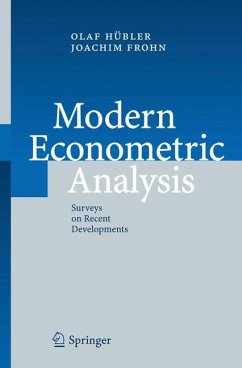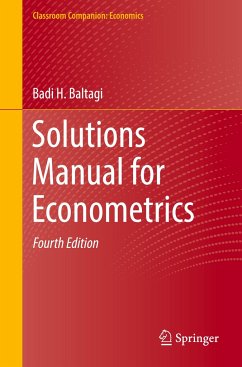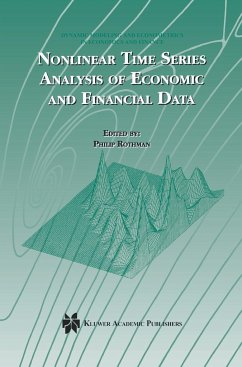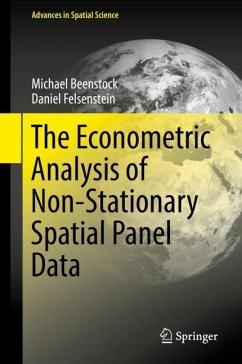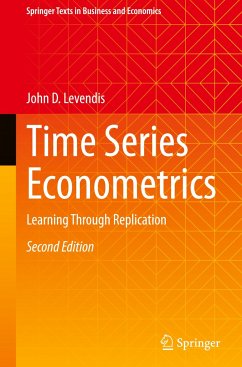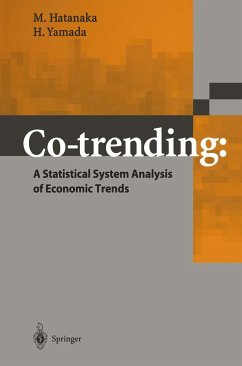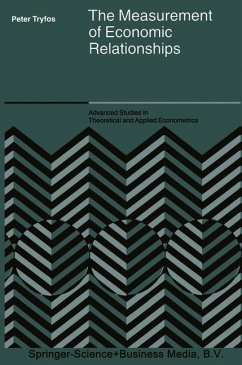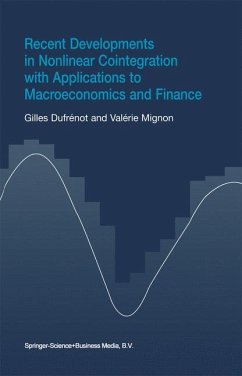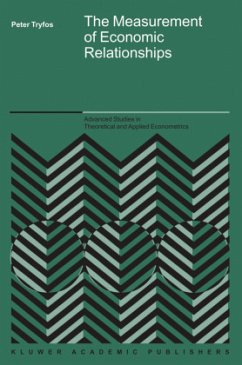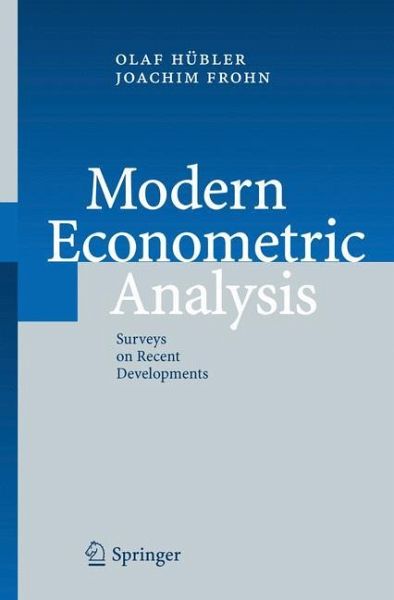
Modern Econometric Analysis
Surveys on Recent Developments
Herausgegeben: Hübler, Olaf; Frohn, Joachim

PAYBACK Punkte
38 °P sammeln!
Traditional econometric analysis concentrate on classical methods which are far from suitable handling actual economic problems. Modern econometric analysis tries to develop new approaches from an economic perspective. As a consequence, there is less of a unified econometric theory than in former times. Specific branches which require specific methods have been established. Modern time series and duration analysis, panel data analysis, microeconometrics, evaluation methods, and specific data problems are examples of these new approaches. In this book leading German econometricians in different fields present survey articles of the most important new methods in econometrics. The book gives an overview of the field and it shows progress made in recent years and remaining problems.
The importance of empirical economics and econometric methods has greatly in creased during the last 20 years due to the availability of better data and the improved performance of computers. In an information-driven society such as ours we need quickly to obtain complete and convincing statistical results. This is only possible if the appropriate econometric methods are applied. Traditional econometric analysis concentrates on classical methods which are far from suitable for handling actual economic problems. They can only be used as a starting point for students to learn basic econometrics and as a reference point for more advanced methods. Modern Econometrics tries to develop new approaches from an economic perspective. A consequence is that we have less of a unified econometric theory than in former times. Specific branches which require specific methods have been established. Nowadays, nobody has complete knowledge of every area of econometrics. If someone is interested to learn more about a field, relatively unknown to them, they will require support.





